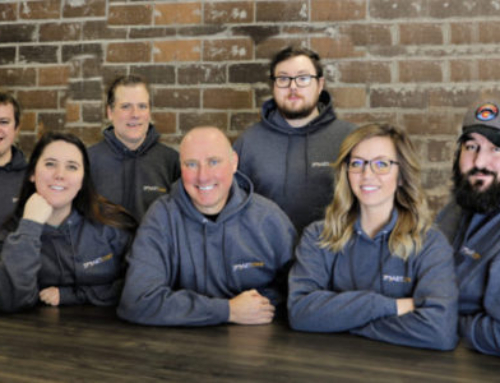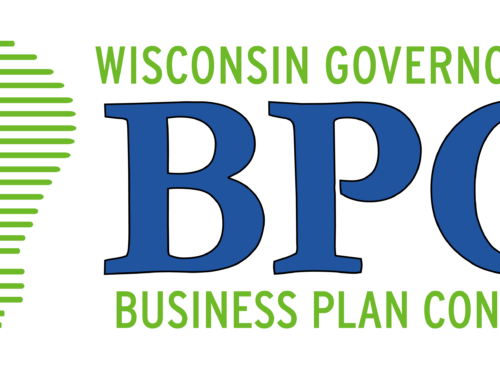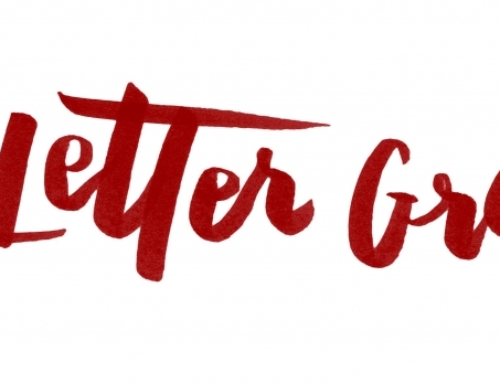The University of Wisconsin-Madison and the Wisconsin Alumni Research Foundation (WARF) recently partnered to form Discovery to Product (D2P), which focuses on entrepreneurship and collaboration to move UW-Madison-inspired technology and innovation to market. We sat down with D2P Director John Biondi to learn more about the initiative and his role managing the project.
Biondi is a veteran entrepreneur with extensive experience in early-stage high technology companies. He has raised more than $60 million for nine early-stage ventures in areas such as nanotechnology, medical devices, biotechnology, software and advanced materials. In leading the D2P initiative, Biondi will draw from his experience in developing early-stage business strategy, business and revenue models and optimizing market share with minimal investment. Below Biondi shares his vision for D2P and noteworthy advice for entrepreneurs who are looking to commercialize their product. To learn more about the D2P initiative, please visit: d2p.wisc.edu.
Q: What is D2P and what is your role with the project?
D2P is a new initiative from and UW-Madison and WARF aimed to help UW-Madison faculty and students commercialize their technologies and inventions. D2P will do this in three ways. First, D2P is being launched with a $2.4 million ‘Igniter’ fund. This money is designed to make pivotal investments in the development of innovations coming from campus to help selected projects in the critical pre-incorporation phase where they are trying to finish proof of concept and find that critical project/market match. Second, D2P will provide a commercial ‘accelerator’ function to those projects selected for funding. This process will help wrap a commercial envelop around the emerging project and get it ready to ‘graduate’ from the university by connecting it with either licensing partners or funding partners if it chooses to become a startup enterprise. Third, D2P helps campus entrepreneurs navigate the entrepreneurial ecosystem to find the resources necessary to take a project out of the lab or the dorm room and into the market.
I am D2P’s first director. My job is to put together the organization and the processes to deliver on the mission I described.
Q: When was D2P founded and how did the program launch?
The idea of D2P began over three years ago with UW-Madison Provost Paul DeLuca. After the shaping and maturing of the idea through input of many people on campus, the initiative was approved by WARF Managing Director Carl Gulbrandsen and others at the organization and endorsed and championed by UW-Madison Chancellor Rebecca Blank. D2P was officially approved in November 2013 and a search for a director initiated in January 2014. I came on board in March 2014, concurrent with the first round of submittals for the Igniter grant on campus.
Q: What is the overall goal of the initiative?
Simply put, the goal of D2P is to see UW-Madison ideas turn into new products, companies and jobs in Wisconsin.
Q: Why do you believe D2P is a valuable resource?
We have a very rich entrepreneurial ecosystem at UW-Madison, in the Madison Region and throughout the state. D2P can be a powerful catalyst for commercialization of university ideas because it focuses on the process of moving projects directly down a commercial pathway. D2P provides specific guidance to projects by allotting investment dollars at a critical time in the project’s life-cycle. The program also offers commercial expertise through an intense acceleration process rich in subject matter experts, mentors, financial and strategic help. Beyond providing funding and acceleration to selected projects, D2P helps faculty and students develop a more business-minded perspective on their ideas. It brings a markets and applications mindset to campus innovations.
Q: What types of industries does the program aim to help?
D2P is working with ideas that come from UW-Madison. Those ideas span a full range of industries, including physical sciences and engineering; agriculture; medical devices; computer science; information technology; and drug development – all strengths from the colleges at the university.
Q: How does the D2P selection process work/what’s the timeline for selection?
We have had three submission dates for Igniter funding; March 20, April 20 and May 20. These grants are open only to unincorporated projects from UW-Madison faculty, staff and students that will have on-campus status through May 2015. While there are numerous criteria for determining awards, the value of the idea, its potential for technical success and its ability to be commercialized in a reasonable period of time all weigh into the considerations.
Q: With your extensive background in entrepreneurism, what advice would you give to entrepreneurs who are looking to commercialize?
You must connect your idea to a market. Who is willing to pay for your idea? By the same token, the obvious market is not necessarily the best one. A discovery may have many uses but early success comes from identifying a receptive market and focusing on a high-impact application.
Get out of the lab or your dorm room and talk to people. There must be a constant process of iteration between your idea and customers. You must constantly crash your idea against customers, learn and change from that interaction and do it again. After you tune your idea to a market or application, you must also determine the best way of getting it to market. Technologists frequently are not particularly good at this process. You must be able to let go of certain aspects of your technology or idea if that aspect isn’t what customers are willing to pay for.
Q: Anything else you would like to share about D2P?
I think D2P is the latest version of the Wisconsin Idea. The original Wisconsin Idea said that the borders of the state were the borders of the university. University ideas were to be moved out into all aspects of life in the state where people and companies could use those ideas. D2P is about the notion that we will bring all of the resources of the global startup community to the university to help university entrepreneurs develop the products and companies that will create jobs in Wisconsin. D2P isn’t waiting for companies to adopt our ideas. We will do that, of course, but we will also create the companies that will use those ideas and that will hire Wisconsin residents as well as our UW graduates.










FOLLOW US